-

The Plague of Fantasies (Second Edition) (The Essential Zizek)
Modern audiovisual media have spawned a 'plague of fantasies', electronically inspired phantasms that cloud the ability to reason and prevent a true understanding of a world increasingly dominated by abstractions--whether those of digital technology or the speculative market. Into this arena, enters Zizek: equipped with an agile wit and the skills of a prodigious scholar, he confidently ranges among a dazzling array of cultural references--explicating Robert Schumann as deftly as he does John Carpenter--to demonstrate how the modern condition blinds us to the ideological basis of our lives. -
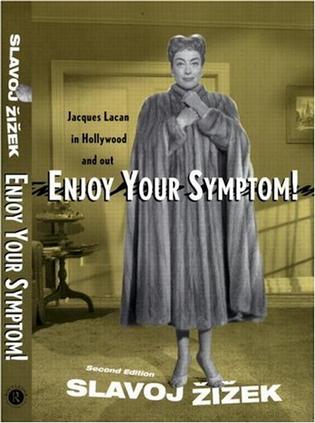
Enjoy Your Symptom!
Slavoj Zizek, dubbed by the Village Voice "the giant of Ljubljana," is back with a new edition of his seriously entertaining book on film, psychoanalysis (and life). His inimitable blend of philosophical and social theory, Lacanian analysis, and outrageous humor are made to show how Hollywood movies can explain psychoanalysis-and vice versa using films such as Marnie and The Man Who Knew Too Much. -
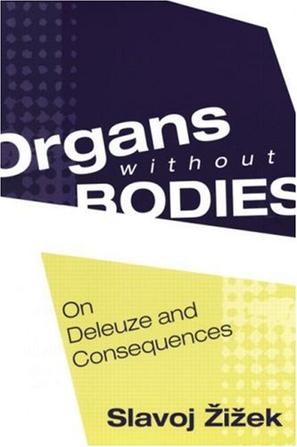
Organs without Bodies
The latest book by the Slovenian critic Slavoj Zizek takes the work of French philosopher Gilles Deleuze as the beginning of a dazzling inquiry into the realms of radical politics, philosophy, film (Hitchcock, Fight Club), and psychoanalysis. Of Organs without Bodies Joan Copjec (Imagine There's No Woman) has written: "With all his ususal humor and invention, Zizek -- the acknowledged master of the 180 degree turn -- here takes a trip into "enemy" territory to deliver Deleuze of a marvelously rebellious child, one that seriously challenges Deleuze's other progeny with a surprising but convincing bid for succession. Those who thought Deleuze's forward march into the future would follow a straight path are forced to rethink their stance. From now on all readings of Deleuze will have to take a detour through this important -- even necessary -- book." Eric Santner (On the Psychopathology of Everyday Life) describes Organs without Bodies as offering "an entirely new degree of conceptual clarity and political urgency. Through his deep engagement with the logic of Deleuze's project, Zizek opens up new possibilities of thought beyond the terms of the current political debates on globalization, democratization, war on terror. Once again, Zizek has produced an utterly timely and radically untimely meditation." Recently profiled in The New Yorker, and hailed by the Village Voice as "the giant of Ljubljana," Zizek is one of the most provocative and entertaining thinkers at work today. -
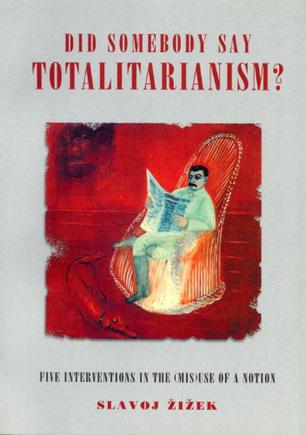
Did Somebody Say Totalitarianism?
-
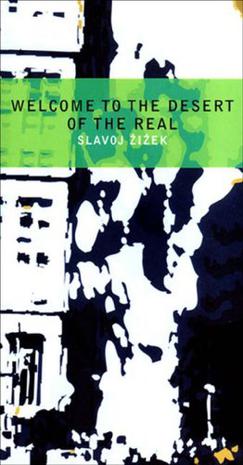
Welcome to the Desert of the Real
-
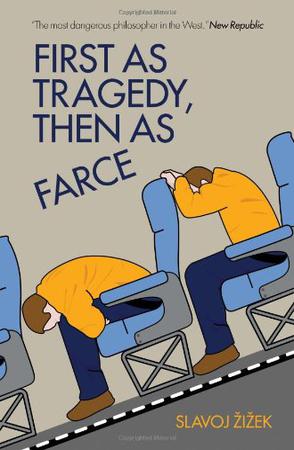
First As Tragedy, Then As Farce
In this bravura analysis of the current global crisis - following on from his bestselling "Welcome to the Desert of the Real" - Slavoj Zizek argues that the liberal idea of the end of history, declared by Francis Fukuyama during the 1990s, has had to die twice. After the collapse of the liberal-democratic political utopia, on the morning of 9/11, came the collapse of the economic utopia of global market capitalism at the end of 2008. Marx argued that history repeats itself-occurring first as tragedy, the second time as farce - and Zizek, following Herbert Marcuse, notes here that the repetition as farce can be even more terrifying than the original tragedy. The financial meltdown signals that the fantasy of globalization is over and as millions are put out of work it has become impossible to ignore the irrationality of global capitalism. Just a few months before the crash, the world's priorities seemed to be global warming, AIDS, and access to medicine, food and water- tasks labelled as urgent, but with any real action repeatedly postponed. Now, after the financial implosion, the urgent need to act seems to have become unconditional - with the result that undreamt of quantities of cash were immediately found and then poured into the financial sector without any regard for the old priorities. Do we need further proof, Zizek asks, that Capital is the Real of our lives: the Real whose demands are more absolute than even the most pressing problems of our natural and social world?